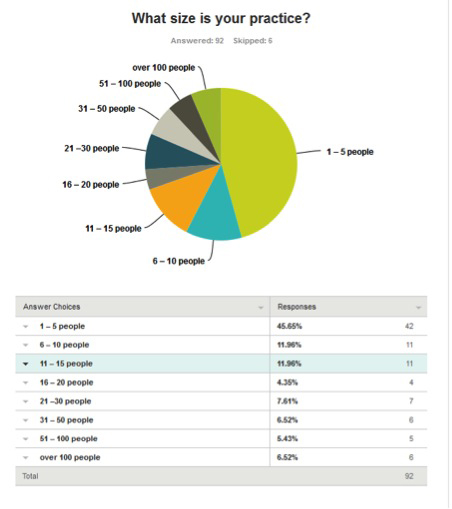Submitted by WA Contents
The canary sings – architectural practices concerned about the 2014 Federal Budget
United Kingdom Architecture News - May 27, 2014 - 12:08 5509 views

Text and visuals: Association of Consulting Architects (ACA)
The Association of Consulting Architects (ACA) surveyed architects to find out what does the budget mean for practices and the profession? The results reveal a strong concern about the future.
Architects are sometimes called the canaries of the construction industry because they are the first to notice changes in the construction industry market. The profession had been facing a challenging economic environment for some time, but, prior to the 2014 Federal Budget, things had started to look up in some areas.
So, what does the budget mean for practices and the profession? This week, the Association of Consulting Architects (ACA) surveyed architects to find out. The results reveal a strong concern about the future. Only seven percent of respondents think the budget will have a positive effect on their own practice, while a mere five percent see it having a positive effect on the wider profession. This contrasts with 67 percent who think it will have a negative effect on the profession and 26 percent who believe it will have both positive and negative effects.
Those practices working in the areas of affordable housing, education, health and sustainability were the most concerned, while those in transport and infrastructure were most optimistic. However, this optimism was tempered by some who argued that the emphasis on infrastructure-as-roads would mean little work for architects.

Positive outlooks were framed terms of an expected rise in business confidence and improved investment climate, but the majority of respondents felt that little of this would flow on to architectural practices as capital expenditure reduces in many sectors. Some noted they had already cut costs and reduced fees in response to existing tight markets and that there is limited scope for further reductions – one respondent noted that a job had already been cancelled because of the budget. Others pointed to the difficulty of navigating personal circumstances – for example, there was a comment that a rise in childcare costs combined with low industry fees may mean that a sole practice was no longer economically viable.
As well as addressing shorter-term concerns about practices and the profession, the survey asked respondents to consider whether in the long-term Australian society would be better off as a result of this budget. Only 28 percent thought that this would be the case – with the predominant rationale relating to the need to curb debt. But even some who agreed with this felt that that budget is not ‘fair’. The majority of comments expressed concern about the social costs of such a strategy, about increased stratification and widening gaps within Australian society and the move towards a society where the economy is seen as the ‘only determinant of success’. This tension was succinctly summed up by this response – ‘from an economic point of view, yes, from a social point of view, no’....Continue Reading
> via Autralian Design Review
